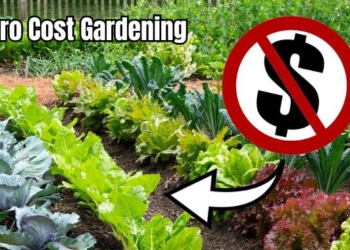
By Phillip Smith, Drug Reporter
Last week, the Senate on Tuesday and the House on Wednesday gave final approval to the massive 2018 Farm Bill, including a provision that will end an eight-decade ban on industrial hemp, that non-psychoactive but extremely useful member of the cannabis family. President Trump is expected to sign the bill into law.
Even though you could smoke a hemp joint the size of a telephone pole and get nothing more than a cough and a headache, for decades the DEA has refused to recognize any distinction between hemp and marijuana that gets you high. That meant that American farmers could not legally produce hemp for a hemp products industry worth $820 million last year and expected to break the billion-dollar mark this year.
That’s right: Thanks to a federal court case brought against the DEA more than a decade ago, farmers in countries where hemp is legal can export it to the U.S., and companies in the U.S. can turn that hemp into a variety of products ranging from foods to clothing to auto body parts to building materials and beyond, but U.S. farmers can’t grow it. That’s about to change.
“For too long, the outrageous and outdated ban on growing hemp has hamstrung farmers in Oregon and across the country,” said Sen. Ron Wyden (D-OR). “Hemp products are made in America, sold in America, and consumed in America. Now, hemp will be able to be legally grown in America, to the economic benefit of consumers and farmers in Oregon and nationwide.”
Wyden and fellow Oregonian Sen. Jeff Merkley (D) teamed up with Kentucky Republican Sens. Rand Paul and Mitch McConnell to sponsor the bill and guide it through Congress. McConnell’s role as Senate Majority Leader certainly didn’t hurt the bill’s prospects.
As well as guiding the bill forward, McConnell took to the Senate floor on various occasions to support it. In his statement on the passage of the farm bill, he touted “the new opportunities available with the full legalization of industrial hemp.”
“Finally we are recognizing industrial hemp for the agricultural product it is,” Merkley said. “This is a cash crop that hasn’t been allowed to meet its full economic potential because of outdated restrictions. When I visited a hemp farm mid-harvest, I saw firsthand the enormous potential of this diverse crop under the limited 2014 farm bill. This full legalization provides economic opportunity for farmers across rural Oregon and rural America—good for jobs, good for our communities, and just good common sense.”
The bill defines hemp as cannabis with 0.3 percent THC or less by dry weight and removes it from the Controlled Substances Act (CSA). Regulatory authority over hemp moves from the DEA to the Agriculture Department. The definition of hemp in the bill includes all parts of the plant and specifically lists cannabinoids, including CBD, that are removed from control of the CSA. The bill also includes funding and authorization for research and authorizes crop insurance for hemp farmers.
The inclusion of CBD has the potential of greatly expanding the size of the legal hemp industry. Hemp-based CBD wellness products—a category that didn’t exist five years ago—already account for nearly a quarter of the domestic hemp market, and the Hemp Business Journal predicts they will account for nearly $650 million worth of sales by 2022, becoming the single largest sector of the hemp market.
It’s been more than 40 years since Jack Herer ignited the marijuana movement’s interest in hemp with The Emperor Wears No Clothes: Hemp and the Marijuana Conspiracy. Herer is long gone—he died at age 70 in 2010—but the movement he launched has now reached the promised land. The single most ridiculously unjustifiable aspect of federal marijuana prohibition has been killed; now it’s time to finish the job by ending federal marijuana prohibition.
About the Author
Phillip Smith writes for Drug Reporter, a project of the Independent Media Institute, and where this article was originally featured.
















